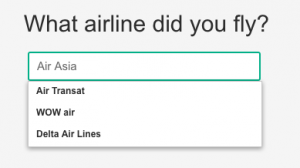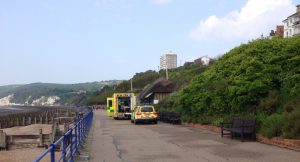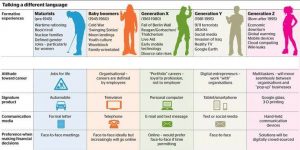Taking a break can be therapeutic as well as challenging if the venue is so good it makes you reluctant to leave.

The world as viewed from within the walls of Portugal’s highest hill village Marvao seems different from the 24×7 connected envirnoment we all inhabit: Manners matter; avarice is not the driver for day to day life; food is to be savoured not devoured as a fuel between meetings; conversations are not superficial based on what each brings to the table and; the sky really is blue not pale blue impacted by pollution.
It was good to get away. These last few months have been hectic to say the least:
- The launch of two new businesses Bees Homes and Bees Homes Financial Services
- Arranging and planning an Asian Tour in November comprising Masterclasses, presentations and book launches – more soon!
- Knee and dental surgery in Lisboa
As a portfolio worker you are often spinning plates and managing tight shifting schedules for clients. Yet every so often a ‘gig’ is both rewarding and stimulating as happened this week.
Knowledge in a Digital Age at Arup
A few months back the KM team at Arup asked if I’d kick off Day Two of their Global Skills Network get together. I was happy to accept. Arup get KM and do it as well as anyone being the recipient of a MAKE award. And yet working across generations and managing the risk of critical knowledge loss challenges them as it does everyone.
Like most businesses Arup has gone digital and is trying out many new technologies. It’s not a state secret, they want to be the best in the built environment. My remit was to act as a provocateur for the sessions that followed reflecting on what Knowledge in a Digital Age might look like and how they might respond to the opportunities it presents. I began as follows:
Some 20 years back Tesco Chairman Lord MacLaurin said when he saw the early results from analysis of the Clubcard holders spending patterns:
“What scares me about this is that you know more about my customers after 3 months that I know after 30 years”
Think of the modern digital economy as a massive extension of that Clubcard concept involving far more data points.
Recognising that today’s worker is deluged with ‘stuff’ and that few organisations have created an effective integrated dashboard that iincludes activities, skills, experiences, transactional data and social collaboration I addressed six basic questions:
- Who or what should I trust? (Which sources, individual and team’s capacity to absorb and the need for trusted curated material)
- What can I do? (To prevent Critical Knowledge loss)
- Why should I? (Make better, more informed decisions)
- Where do I find? (What ‘we’ know about a topic) nb Here I spoke about the recent judgement in the Trant vs Mott MacDonald case around a Common Data Environment (shared Knowledge Base)
- When should I? (Incentivise / reward and in what format)
- How do I go about it? (Engaging across generation and virtually)

My summary led into panel sessions whch it would be unfair to document in detail however I am sure Arup won’t mind if I paraphrase a bit since they are not uncommon:
- People consume knowledge in different ways therefore its important to publish in a variety of forms across different platforms at different times.
- There is a need to value team collaboration and authorship. Rewarding contributions in an environment where people believe knowledge is for everyone and not tradeable might be counterproductive.
- There is a danger that in focusing on the digital environment and explosion of tools you lose sight of the importance of the person and networks. A way to prevent this is to develop an incubation lab to try out new technologies with beta users.
- Knowledge bases and how to guides are important; new entrants rely on them for answers but often fail to ask “is it appropriate?”
- Today’s youngster is comfortable with the search process having grown up immersed in technology. What can we do to bridge the gap, create effective knowledge transfer mechanisms with experienced Skill Network Leaders who struggle to articulate the question they are trying to ask of knowledge and information people and systems?
- Knowledge informs research which drives client business.
And finally
 Back to the title. It seems to me that although there are huge technological advances in the way individual, team, organisational and external knowledge, information and data is presented and we have access to, we are still struggling to absorb it all let alone keep up with the tools used. Despite technology giving us the ability to analyse data, information and knowledge to a higher level than ever before we are still hugely reliant on search to present the findings. Yet few seem to have cracked the ability to search across internal and external sources concurrently.
Back to the title. It seems to me that although there are huge technological advances in the way individual, team, organisational and external knowledge, information and data is presented and we have access to, we are still struggling to absorb it all let alone keep up with the tools used. Despite technology giving us the ability to analyse data, information and knowledge to a higher level than ever before we are still hugely reliant on search to present the findings. Yet few seem to have cracked the ability to search across internal and external sources concurrently.
In a previous post I talked about the need for Assisted Search . My session this week reinforced that: A Knowledge Base is a form of curated assisted search where those responsible for it have assembled critical knowledge their organisation needs to sustain and grow its business.
The role of the knowledge professional in that remains vital and “curate” is one of the 8 ‘ates I describe in “Navigating the Minefield…” and will be going into more detail on when I visit Asia in November.

 So yesterday having recently confirmed my participation in KM Asia 2017 and booked a flight from Hong Kong to Kuala Lumpur on AirAsia I decided to comment on a previous flight.
So yesterday having recently confirmed my participation in KM Asia 2017 and booked a flight from Hong Kong to Kuala Lumpur on AirAsia I decided to comment on a previous flight.
 Today was a case in point. As I got to the seafront I was approached by an Indian man who looked lost.
Today was a case in point. As I got to the seafront I was approached by an Indian man who looked lost. My second strange encounter was to find two paramedics and an ambulance on the promenade by one of the thatched beach shelters which are used in good weather as overnight accommodation by those who have none.
My second strange encounter was to find two paramedics and an ambulance on the promenade by one of the thatched beach shelters which are used in good weather as overnight accommodation by those who have none. In the case of Patient Access I imagine engagement is a bigger challenge due to its wider range of potential users than in a business environment where focus is on Baby Boomer to Generation Z .
In the case of Patient Access I imagine engagement is a bigger challenge due to its wider range of potential users than in a business environment where focus is on Baby Boomer to Generation Z .